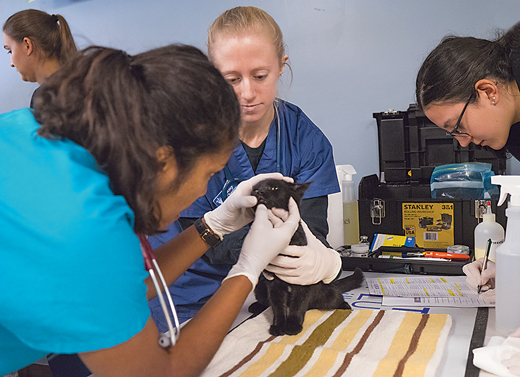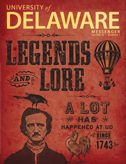For Pets, Poverty
Can Be Real

ALUMNI | Imagine for a moment the life of a dog or cat whose owners have little of their own. In the close-quarters existence of poorer neighborhoods, these pets are more prone to disease and injuries, and when they do grow ill, an expensive trip to the vet is rarely an option.
Gradually, hope is growing for the many Delaware pets mired in impoverished circumstances, thanks to some committed veterinarians, concerned animal welfare groups and the animal-loving instincts of students from UD’s Pre-Veterinary Medicine and Animal Biosciences program.

On the first Saturday of each month, the student interns help at free pet care clinics provided by One Health, a new effort by the Delaware Humane Association and affiliated providers to increase pet healthcare options in poorer areas.
On most weekends, this means more than just a little wrangling, coaxing and soothing as anxious pets are placed on exam tables, poked and prodded, then sent home properly vaccinated and tagged—a process that could cost $300-$400 at a private provider. By gaining this precious hands-on experience, students in the widely respected four-year program get an added boost to their credentials for admission to highly competitive veterinary schools.
“This type of experience is very rare for the students,” says Kristin Jankowski, a Delaware veterinarian who helps lead the clinics. “Usually, at a typical veterinary clinic, they would be cleaning cages. They wouldn’t even be with the client. Here, they get to experience the whole thing—taking a history, collecting samples, administering medicine.”



